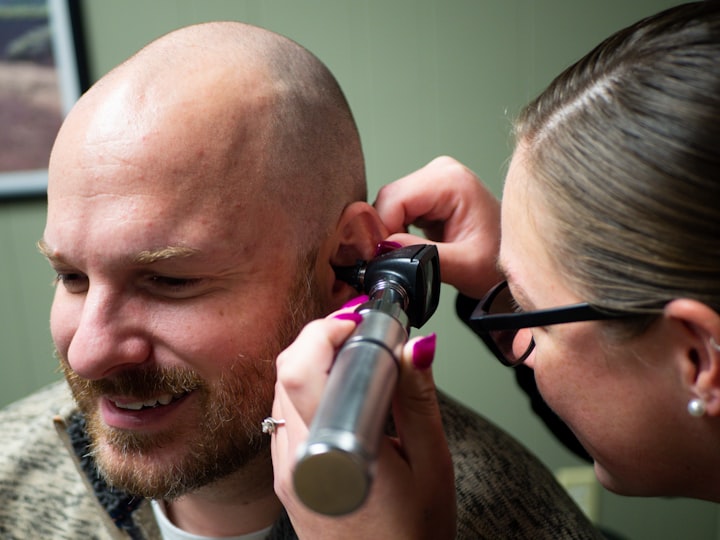Meniere's Disease
Understanding the Symptoms, Treatments, and Hope for Relief

Meniere's disease is a debilitating condition that affects the inner ear, leading to episodes of vertigo, hearing loss, tinnitus (ringing in the ears), and a feeling of fullness or pressure in the affected ear. It was first described by the French physician Prosper Ménière in 1861, and since then, medical professionals have made significant progress in understanding the disease. In this blog post, we will explore what Meniere's disease is, whether there is a cure, available treatments, and provide other helpful information for readers seeking knowledge and support.
What is Meniere's Disease?
Meniere's disease is a chronic disorder of the inner ear that affects approximately 615,000 people in the United States alone. The exact cause of Meniere's disease is still unknown, although it is believed to be related to fluid buildup in the inner ear. This accumulation of fluid, known as endolymphatic hydrops, disrupts the delicate balance of the inner ear, leading to characteristic symptoms.
During a Meniere's episode, individuals often experience severe vertigo, which is a spinning sensation that can last for minutes to hours. Accompanying the vertigo, hearing loss can occur, ranging from mild to profound, and it is typically temporary but can become permanent over time. Tinnitus, a persistent ringing, or buzzing sound in the ear, is also common, along with a feeling of pressure or fullness in the affected ear.
Is There a Cure for Meniere's Disease?
Currently, there is no known cure for Meniere's disease. However, various treatments can help manage the symptoms and improve the quality of life for individuals with this condition. The treatment approach is typically tailored to each individual's specific symptoms and their impact on daily life.
What Are the Treatments for Meniere's Disease?
a. Lifestyle Changes:
Making certain lifestyle modifications can be beneficial in managing Meniere's disease. These include adopting a low-sodium diet, reducing caffeine and alcohol intake, and avoiding triggers that may provoke symptoms, such as stress and fatigue. Regular exercise and stress management techniques can also help in coping with the condition.
b. Medications:
Medications may be prescribed to alleviate specific symptoms associated with Meniere's disease. Diuretics are often prescribed to reduce fluid retention and relieve pressure in the inner ear. Anti-nausea medications can help manage vertigo-induced nausea, while vestibular suppressants can alleviate the symptoms of vertigo.
c. Rehabilitation Therapy:
Vestibular rehabilitation therapy, a form of physical therapy, can be beneficial for managing Meniere's disease. This therapy aims to strengthen the vestibular system and improve balance and coordination. It involves various exercises and techniques that can help reduce dizziness and improve overall stability.
d. Invasive Procedures:
In severe cases where symptoms are not adequately managed with conservative treatments, invasive procedures may be considered. These procedures include endolymphatic sac decompression, which involves creating a passage for fluid drainage, and vestibular nerve section, where the nerve responsible for balance is surgically cut.
Other Helpful Information for Readers
a. Coping Strategies:
Living with Meniere's disease can be challenging, but various coping strategies can help individuals navigate their daily lives. This includes educating oneself about the condition, joining support groups, seeking emotional support from loved ones, and practicing self-care to manage stress and anxiety.
b. Seeking Medical Advice:
It is essential to consult a healthcare professional if you experience symptoms suggestive of Meniere's disease. An accurate diagnosis and appropriate treatment plan can significantly improve symptom management and overall well-being.
Conclusion
Meniere's disease is a complex condition that affects the inner ear, causing distressing symptoms such as vertigo, hearing loss, tinnitus, and ear fullness. While there is no cure for Meniere's disease at present, numerous treatment options are available to help individuals manage their symptoms effectively. By adopting lifestyle changes, utilizing medications, undergoing rehabilitation therapy, and considering invasive procedures in severe cases, individuals can find relief and improve their quality of life. Remember, early diagnosis and timely intervention are crucial in managing Meniere's disease and reducing its impact on daily life.
For more detailed information and resources on Meniere's disease, please visit the Mayo Clinic’s online article about Meniere’s Disease.
About the Creator
Timothy A Rowland
I’m an every day human Xennial from the United States. I have many interest. I just want to improve your life and maybe entertain you. Available for editing and LeadsLeap projects at: https://www.fiverr.com/greyhatcompany






Comments
There are no comments for this story
Be the first to respond and start the conversation.